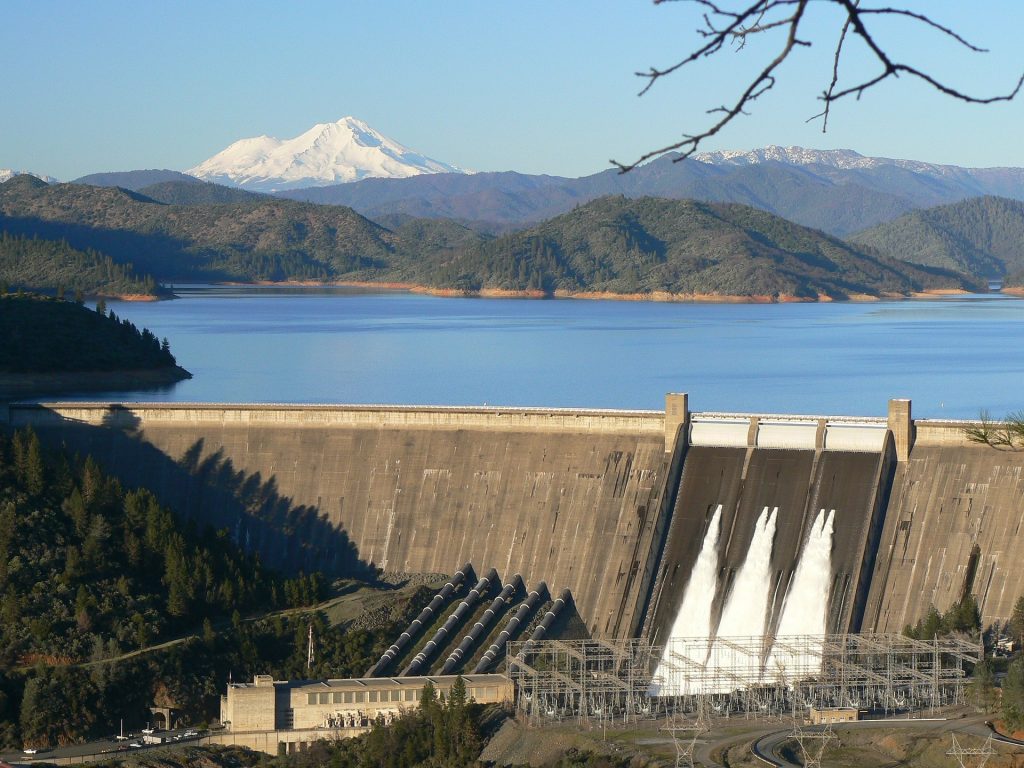By Nate Scherer
Despite a dizzying array of recent setbacks for green energy, including slumping demand for electric vehicles and an embarrassing rollout of new charging stations, the Biden administration continues to push full steam ahead on its misguided climate change agenda. This agenda includes achieving a carbon-free power sector by 2035.
Strangely, though, the administration appears determined to undercut its own goal at every turn.
The latest example is a leaked government document detailing the administration’s plan to save northwest fisheries by promising to build new green energy projects in the Pacific Northwest. The document is particularly controversial because it reveals that the government is open to removing four major dams located along the Lower Snake River (LSR) in southeast Washington.
Ice Harbor, Little Goose, Lower Granite, and Lower Monumental dams are part of the Federal Columbia River Power System. Together, they generate roughly 1,000 megawatts of electricity or up to 3,000 megawatts during peak season. That is enough clean, renewable energy to power over 800,000 American homes.
Specifically, the draft agreement states the government is committed to helping several tribes in the Pacific Northwest “develop and deploy” new energy resources that will serve as a “replacement” for the energy generated from the LSR dams. While acknowledging that dam breaching will require congressional authorization, the government promises to use taxpayer money and resources to identify new energy sources regardless. This is disturbing on several levels.
First, the administration is openly entertaining the idea of needlessly removing four significant clean energy sources. The energy from the dams would have to be fully replaced before they could be breached, but if the administration cares about green energy, it should encourage the construction of more dams instead of removing them. Hydropower generates 90 percent of the Pacific Northwest’s renewable energy and delivers clean power to 60 percent of its population. The four LSR dams alone are the region’s largest source of clean energy. Removing any of them should be a non-starter. It would take years, if not decades, to complete the projects necessary to replace the energy lost from breaching these dams.
In addition, there is no guarantee that salmon and steelhead populations, which serve as one of the primary focal points of the draft agreement, would even recover. The U.S. government has already spent $17 billion on LSR infrastructure improvements to restore their populations, including improving passage systems, modifying turbine design, and constructing new fish ladders. Yet, their numbers remain historically low, with four species still listed under the Endangered Species Act. While continuing to assist with salmon recovery is important, other economic and social considerations cannot be ignored.
The Federal Caucus estimates that dam removal would cost $1.3 billion to $2.6 billion. However, replacing the energy lost by closing LSR dams would cost even more. For instance, a study published by the Bonneville Power Administration found that offsetting this lost energy could cost anywhere from $11.2 to $19.6 billion. Democratic Washington Governor Jay Inslee’s administration estimates that replacing the services provided by the dams could cost between $10.3 billion and $27.2 billion.
It is also worth remembering that the LSR dams play an important role in regional agriculture, flood control, and transportation while also providing employment for local communities. Removing them would be catastrophic for the region. Farmers in the area rely on the river system to help them transport their crops. Eliminating the dams would require many of them to rethink how they get their crops to market. Trucking and rail are not always viable options, depending on infrastructure limitations.
Whatever the actual cost of breaching the LSR dams and replacing the energy they generate, the government will inevitably waste an enormous amount of money that could be better spent elsewhere. While there is nothing inherently wrong with analyzing the Pacific Northwest’s energy needs, enhancing infrastructure, and assisting with fish restoration efforts, it would be a mistake for the administration to lose sight of the larger reality — that all forms of energy are needed to help meet America’s growing needs.
Although nothing in the draft agreement explicitly states that the administration will pursue dam removal, plenty of recent examples exist to demonstrate that it’s a real possibility. The administration should resist pressure from activist groups to take these misguided actions and instead embrace using all the resources that nature offers to expand energy production and secure America’s energy future.
Nate Scherer is a policy analyst with the American Consumer Institute, a nonprofit education and research organization.
Originally published by The Daily Caller. Republished with permission. Content created by The Daily Caller News Foundation is available without charge to any eligible news publisher that can provide a large audience. For licensing opportunities of our original content, please contact licensing@dailycallernewsfoundation.org
For more on renewable energy, click here.
For more on hydroelectric dams, click here.
